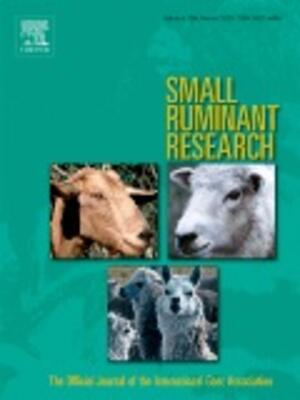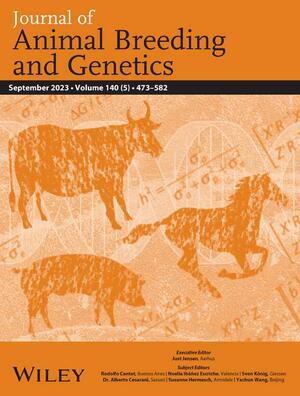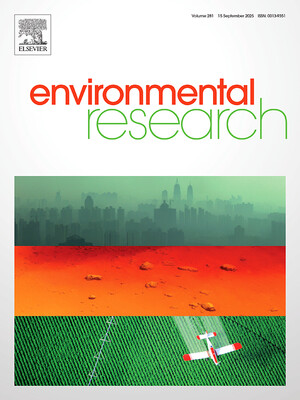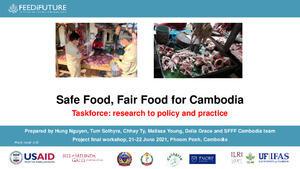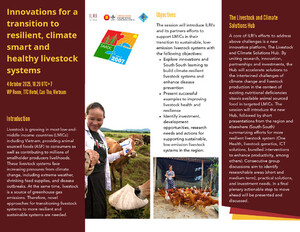
Bridging norms and resources: Enhancing gender equality and adaptive capacities in Bangladesh's climate-stricken agrifood systems
Abstract
In the context of changing agrifood systems (AFS) and climate change, it is critical to uncover how gender equality and adaptive capacity within AFS can be simultaneously addressed. This study tests hypotheses derived from a Gendered Food Systems framework and recent frameworks linking climate change and gender equality in AFS. The hypotheses suggest that reducing structural constraints to gender equality in AFS will contribute to women’s empowerment and more gender-equal climate-adaptive capacities and AFS outcomes, such as food and nutrition outcomes. We test these hypotheses by examining the effects of a first intervention, ‘Engaging Communities and Authority to Tackle Oppressions’ (ECATTO), which addressed discriminatory gender norms and attitudes, and a second intervention ‘Strengthening Household Ability to Respond to Development Opportunities’ (SHOUHARDO III), which addressed access to resources and extension services, both implemented in Kishoreganj district, a climate and gender inequality hotspot in Bangladesh. We collected primary gender-disaggregated intrahousehold data among treatment and control populations in March 2023 and used quasi-experimental methods to test the hypotheses. ECATTO proved effective at improving awareness among both women and men about women’s rights and improving positive attitudes toward women’s leadership. It also increased women’s confidence in assuming leadership roles and led to a decrease in incidents of violence in households, as reported by men. However, it did not result in a change in women’s own reported experiences of violence. SHOUHARDO III promoted the adoption of climate-smart farming and livestock practices by women while also reducing intrahousehold disparities in access to resources and services. Both ECATTO and SHOUHARDO III contributed to increasing women’s empowerment in agriculture. Additionally, ECATTO was associated with an increase in women’s dietary diversity. Our study findings confirm some of the hypotheses, indicating that challenging structural barriers to gender inequality associated with discriminatory norms and attitudes, and challenging unequal access to resources and extension services can support women’s empowerment in climate-affected AFS. Enhancing gender-equal access to resources can also support gender-equal climate-adaptive capacities, suggesting a promising avenue to improve gender equality and climate-adaptive capacity simultaneously in AFS. Moreover, challenging discriminatory norms and attitudes has the potential to increase gender equality in nutrition outcomes, which may not be achieved solely by increasing access to resources.
Citation
Akhter, S., Lecoutere, E., Kihoro, E., Kamruzzaman, M. and Dey, D. 2024. Bridging norms and resources: Enhancing gender equality and adaptive capacities in Bangladesh’s climate-stricken agrifood systems. CGIAR GENDER Impact Platform Working Paper #019. Nairobi, Kenya: CGIAR GENDER Impact Platform. https://hdl.handle.net/10568/152036





